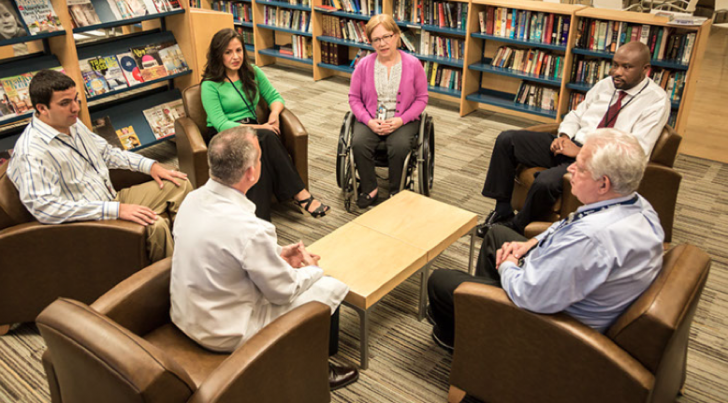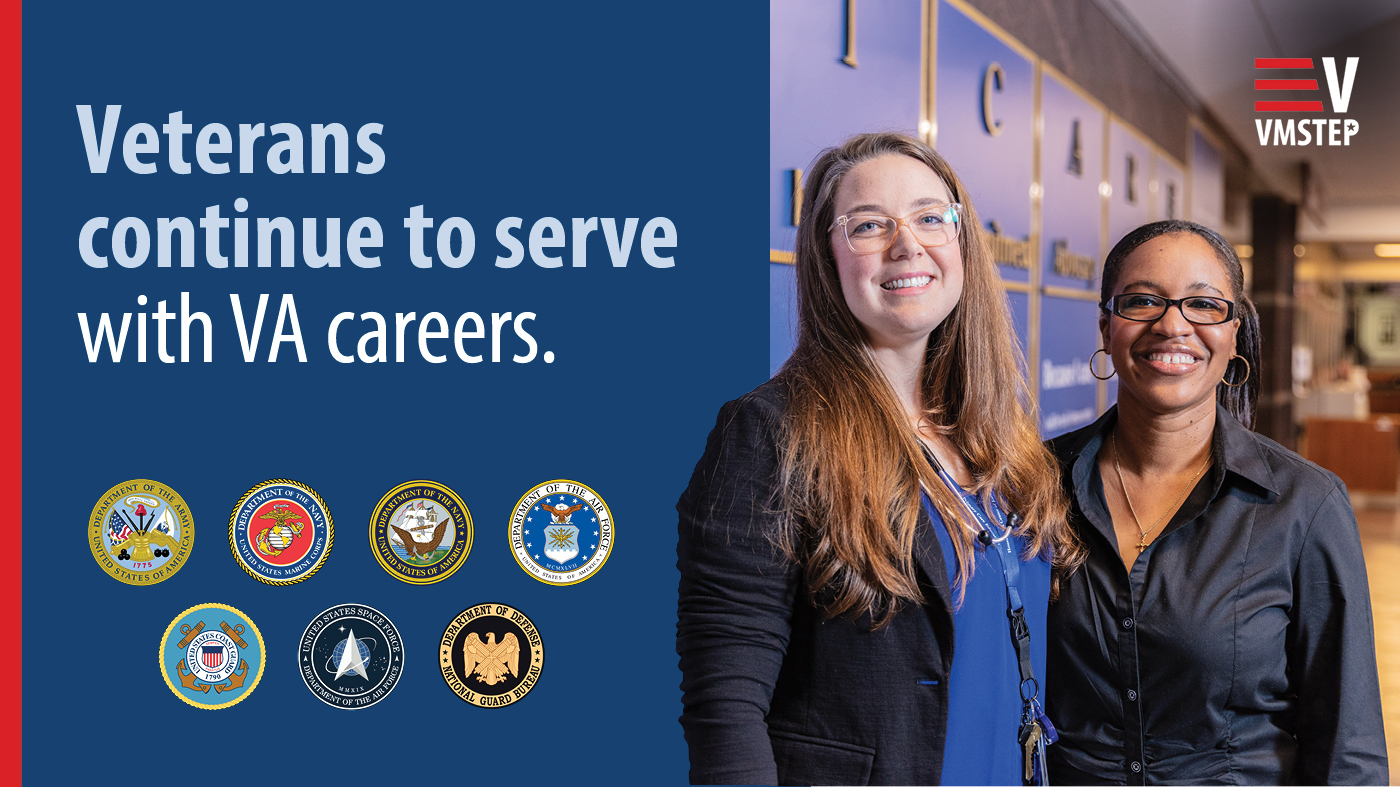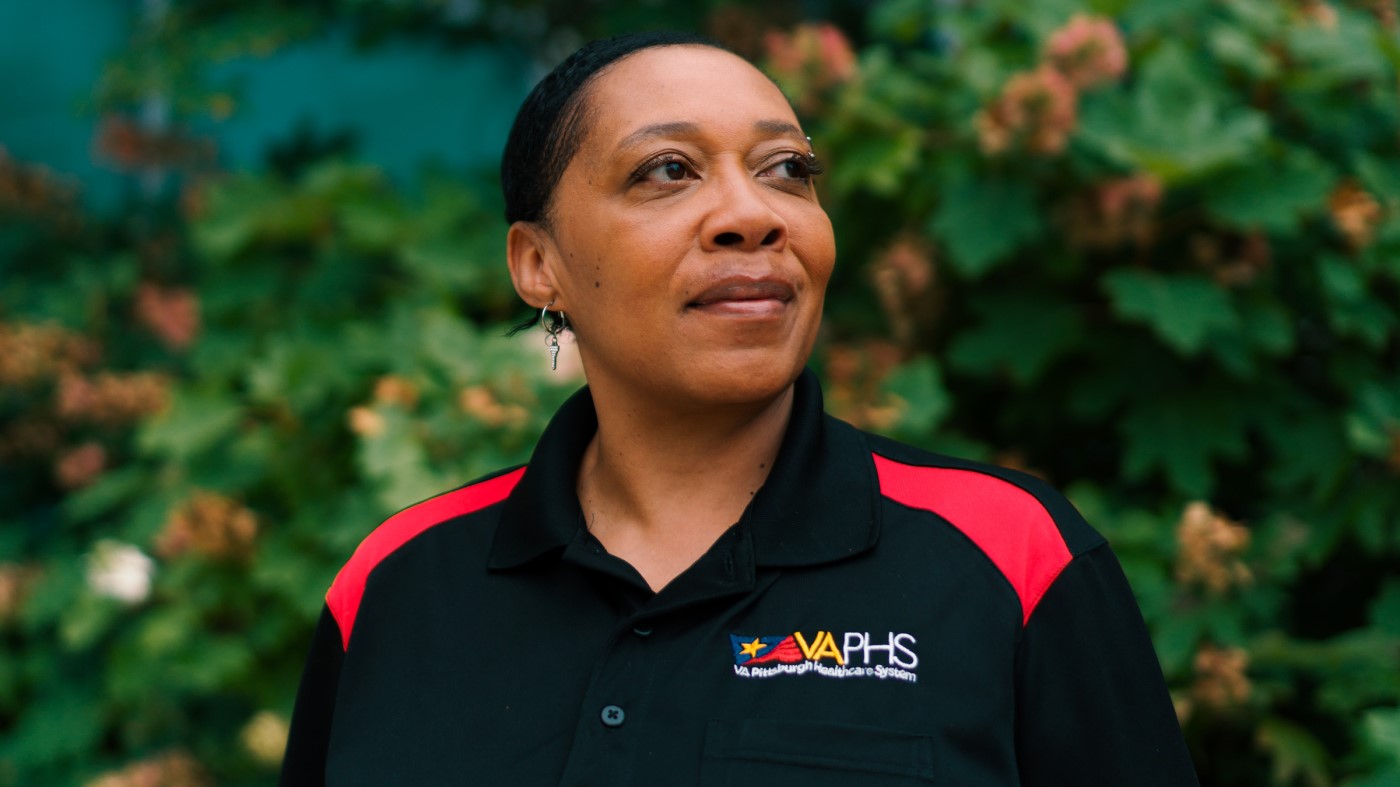With active duty personnel returning from service around the world, members of the United States Military may appear to have no injuries. But, many times the wounds sustained in combat are unseen. As the science behind post-traumatic stress disorder (PTSD) has improved, VA has stepped up their mental health efforts to meet this growing need.
Dr. Alicia Brown, a psychologist who works at the rehabilitation and recovery center recounts an experience with a patient, “We had somebody who came in who hadn’t worked in 25-30 years.” Our goal is to help every Veteran with PTSD, or other serious mental condition, gain the confidence to take on new opportunities and the skills to deal with fresh challenges.
Our program philosophy starts with getting Veterans into recovery quickly to begin the healing process, which can take years – or a lifetime. A big part of that recovery is giving Veterans the tools that help them feel a part of their communities again. Our treatment structure skillfully integrates a network of support, while encouraging independence.
Without the burden of presenting insurance, the VA staff provides care tailored to each Veteran’s need, and not by managed care policies. Dr. Alicia Brown says, “It’s amazing to see the transition Veterans make by coming through our program.”
We’ve created a comprehensive healing and learning environment, and our Veterans can always reach out whenever they feel like they need help. We also impart basic living and social skills training that Veterans can apply to their everyday lives. Our goal is more than just helping them to be successful at our treatment centers – we want them to lead successful, empowered lives.
To support the challenges facing a new generation of Veterans, we are committed to recruiting committed Mental Health professionals. Explore career opportunities at VAcareers.va.gov/MentalHealth.
Topics in this story
More Stories
For Veterans, the mission does not end when the uniform comes off. VA careers offer opportunities to serve while building fulfilling civilian careers.
Whether it’s access to the great outdoors or a calmer pace in your everyday life, you can find it in rural VA communities around the country.
If you’re looking for an opportunity to provide care to Veterans outside a traditional clinical setting, Home Based Primary Care (HBPC) is a great option.







I see how you are making progress on PTSD treatment after denying it’s existence for many years, so many that the Vietnam generation will be gone before they can get the total benefit. I do not see that it is recognized as being able to contract in non-combat situations when any one can qualify in the civilian world. I worry that those returning with chemical and other biological issues are being stalled by the same unrecognizable theory and that by the time they are compensated will either be victims of suicide, jail, or old age (granted the first couple may be ptsd related too.) Early diagnosis and treatment are essential and there should be no guilt implied. The difference between civilian treatment is that they try to cure you. The VA is caught between Iraq and a hard place. Diagnose and treat and you might be liable to compensation. Do the right thing by them, please.